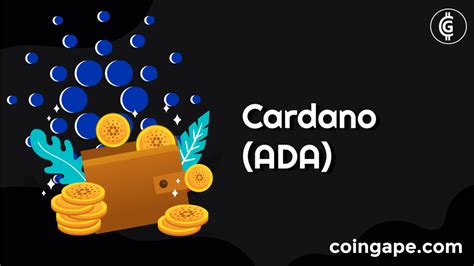Cardano (ADA): Opening the future of the cryptocurrency trade
In the world of digital currencies, few platforms have captured the imagination of merchants such as Cardano (ADA). One of the most promising cryptocurrency Ada has made waves on the market with its unique features and innovative approach to trading. In this article, we explore Cardano’s world and explore what makes it a convincing choice for merchants.
What is Cardano?
Cardano (ADA) is an open source diversified Blockchain platform founded by Charles Hoskinson, one of the founders of Ethereum. The platform is designed to provide a safer, scalable and more durable alternative to traditional cryptocurrencies such as Bitcoin and Ethereum.
Cardano’s main features:
- Distributed Administration: Cardano’s consensus mechanism is based on the protocol of the certificate (POS), which means that validators are elected through the voting system instead of the central authority. This leads to the most scattered and safer network.
- Ada (Cardano): The original cryptocurrency of the platform ADA has a unique proposal. It is designed as a utility that offers various uses, such as rewards, transaction fees and even the right to vote in administrative practices.
- Adaptive certificate (Apos): Cardano’s apop protocol ensures that the validators are rewarded with ADA for their contribution to the network. This leads to a more efficient and scalable consensus mechanism.
- Ouroboros Smart Language:
Cardano uses its own intelligent contract language, Ouroboros, which offers developers flexibility to create complex decentralized applications (DAPP).
- Performing Network: Cardano’s network is designed to deal with high volumes of traffic, ensuring fast and reliable events.
Trading on Cardano:
Cardano has become a popular choice among merchants due to its unique features and innovative approach. Here are some of the most important aspects of Cardano’s trading:
- Volatility Management:

Cardano’s APOP protocol ensures that the network is managed in a way that prevents price bubbles and volatility.
- Awards: Merchants can earn rewards by holding an ADA that can be used to participate in the validation process and to validate network events.
- Transaction Fees: Cardano Transaction Fees are competitive with other cryptocurrencies, which makes it an attractive alternative to merchants who need quick and cheap transactions.
- Market: Cardano has a growing market manufacturing ecosystem, allowing merchants to borrow ADA at a fixed price and sell it back at a slightly higher price when the amounts borrowed are returned.
The Benefits of Cardano Trading:
- Smaller Volatility: with Cardano’s Apop protocol helps to control volatility, which makes it a more stable choice for merchants.
- Competitive Payments: Cardano Transaction Fees are competitive with other cryptocurrencies, which reduces the overheads of trading.
- Innovative Ecosystem: Cardano has a growing marketing ecosystem that offers merchants new opportunities to earn prizes and participate in the web.
Conclusion:
Cardano (ADA) is a promising cryptocurrency that offers a unique set of features and an innovative approach to trading. With decentralized administration, adaptive certificate, OUROBOROS Smart, a high performance network, rewards, transaction fees, marketing, lower volatility, competitive fees and growing ecosystems, Cardano has become an attractive to merchants.
As the cryptocurrency market continues to develop, it is necessary to keep up to date with Cardano’s development and monitor its price changes.

 92.5 Sterling Silver Baguette Zircon Drop Necklace
92.5 Sterling Silver Baguette Zircon Drop Necklace